Civilization 7 takes some huge leaps for the series, and the one that really stands out is the new age system. This completely changes how a Civilization game plays out. You pick a leader at the start, then transition into the Exploration Age and Modern Age with a new Civilization. The new way you need to think about how your civilization develops over history introduces a lot of new strategies, units, world events, and much more.
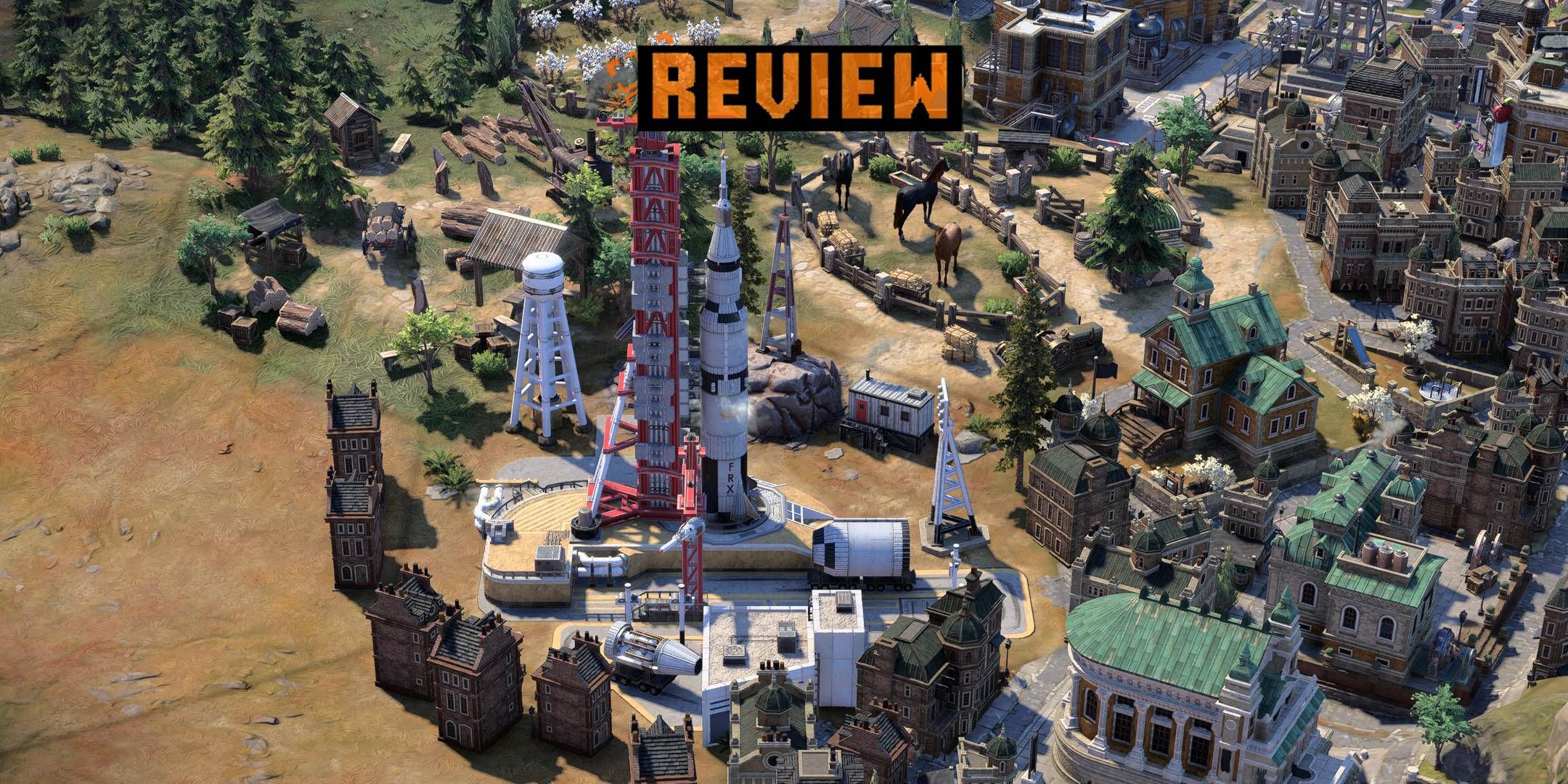
Related
Civilization 7 Review – Classic Civilization With A Few New Twists
An excellent art style, fantastic sound track, and great leaps forwards for replayability, Civilization 7 is a great game. But it will prove divisive.
We’ll be covering the absolute fundamentals of Civilization 7, as well as digging a bit deeper into some of the new mechanics. We’ll try to progress age-through-age to give you a full walkthrough of a game.
Starting The Game
Even before you start, there are some new options you need to consider – potentially game-changing decisions before you’ve even hit play.
First up, your leader and civilization.
Leader And Civilization
Unlike previous Civilization games, the leader and their civilization are no longer linked. Yes, that does mean you can play as Augustus of the Ming Dynasty, but before you shake your head at the historical inconsistency, let’s dig into why this is quite an interesting change to the series.
Each leader has a set of bonuses that will span across all three ages – Antiquity, Exploration, and Modern (don’t worry, more on these in a moment) – so picking the right one is pretty important.
Leaders have a natural inclination towards certain win conditions. You should consider what sort of victory you want to aim for before you even begin the game.
Civilizations, however, will change as the game progresses. For example, you may begin as Rome with its boosts to infantry production and culture gain, but in the Exploration Age you may switch Civilizations to something else. This has the potential to completely change the direction of your game.
For example, you may have spent more time as Rome building wonders and culture buildings and neglecting the military side of things. This means you may want to adjust your Exploration Age tactics to a Civilization more suited for culture gain.
With your leader and civilization decided, it’s time to think about mementos.
Mementos
Mementos are another new addition to Civilization 7. These are part of the game’s meta-progression, basically rewards that can be earned by playing the game, leveling up different leaders, and completing challenges.
You can choose two Mementos to use at the beginning of the game. These can provide boosts that range from extra attribute points for your leader, to providing extra gold for every 50 tiles you scout.
You can also change Mementos between Ages.
Mementos are usually color-coded to give you an idea of what sort of victory condition they lean into. Gold for an economic victory, red for military, and so on.
As you play the game, you’ll earn extra Mementos. Level three and five will grant you Mementos from your leader levels, whereas completing challenges – like defeating the game – will also grant you new Mementos. Lastly, you can earn Mementos by leveling up the Civilization pass.
Getting Started In The Antiquity Age
Okay, the game has started – you’ve picked a leader and civilization and slotted any Mementos you might think will be good for the game. Now it’s time to settle your first city.
Unlike previous Civilization games, Settlers will not always settle a city. Newly founded settlements will first become Towns, which you later need to convert with gold into cities.
However, your first Settler is a unique unit called a Founder. This instantly settles a city.
Your first city is the important choice in the game – and while the choice may seem pretty straightforward, sometimes it isn’t. You can use the Settler lens located in the tab above your map (it looks like a telescope) to see if the game has any suggestions for you.
Here are a few things to know about cities in Civ 7.
- Cities will have access to resources within a three-tile radius of the city hall.
- Cities will grow immediately with one population which can be unlocked a new tile.
- Unlike previous Civilization games, growing on a tile will instantly improve that resource or tile. No need for a builder.
Starting Strategies
The first ten or so turns are extremely important in Civilization 7. This is because of the new Discovery system which has replaced the typical goodie huts or barbarian villages.
These are unique locations on the map that will grant powerful rewards when you walk over them with a unit.
You want to get as many of these as you possibly can, but you’re racing against other civilizations to collect them.
That’s why we always opt for the Scout rush strategy.
Early Scout Rush
The idea here is to produce at least two scouts in your city as quickly as you can. Grab an early production tile, if you have one, and try to reduce the number of turns it takes to get a scout out the door.
Once you’ve got a scout, you can use the Search function to quickly scan a large radius, highlighting Discoveries even through the fog of war. The search function is located on the unit card. Lookout will not highlight Discoveries.
Head straight towards them, making any Luxurious Encampments you see a priority – these often have the best rewards.
If you have good production, you can opt to go for the triple-scout rush. This will help you discover lots of Discoveries, nearby Independent Powers, and other civilizations nearby.
Independent Powers, Diplomacy, Warfare
Conflict is inevitable in Civilization 7, especially as you begin to encounter Independent Powers and Civilizations.
Independent Powers are this game’s city-states, and they can either spawn as Hostile or Friendly. The type of Independent Power they are is marked by the icon next to their city name, so a coin for economic, a flask for science, etc. On standard speed, it costs 170 Influence to start to befriend an Independent Power.
Early on, the AI will start to aggressively spam you with Influence-related opportunities. These might be research collaborations, local festivals, or combat bonuses. Sometimes it makes sense to reject these in favour of saving Influence so as to befriend Independent Powers.
On harder difficulties like Immortal and Deity, the Independent Powers can be extremely aggressive. If you meet multiple hostile powers nearby, we recommend using some of your early production to build up some military.
Diplomacy
Diplomacy has received a total revamp in Civilization 7. You now earn Influence per turn that can be used to start diplomatic endeavors and sanctions with or against other players.
Even early on, the AI will start to spam you with various endeavors. You don’t need to accept them all. However, some of these can be beneficial – like a research collaboration to boost your early science.
Playing a diplomatic game is more viable than ever in Civilization 7, especially at the harder difficulty levels. With enough Influence generation, you can essentially stop enemies from attacking you by rejecting their hostile sanctions.
Warfare
The map in Civilization 7 gets small very quickly. By that we mean that that neighboring Civilization might seem far away when the game begins, but within just a few turns you’ll be right next to each other.
The AI in Civ 7 is generally aggressive, and you must build troops to survive early aggression.
Thankfully, there are a lot of ways to play both defensively and offensively – mostly thanks to the new Army Commander unit.
Army Commanders
Army Commanders are a brand-new addition to Civilization 7, and they bring so much to combat. They help to remove micromanagement by enabling you to stack multiple units on one tile and move them as one, as well as provide significant combat buffs via a promotion system.
Units no longer receive promotions in Civilization 7. Instead, Commanders receive all experience and promotions, and retain their levels between Ages. This makes them one of the most important units in the game.
Army Management
The Army Commander has a variety of useful promotions – some, such as the Assault promotion, allowing units to immediately move after being deployed by your Commander.
Alternatively, you could opt for the Fortification tree – this is particularly useful if you’re playing a defensive game.
Commanders can even be useful if you’re not playing a military game, as they can provide buffs and bonuses to cities and districts.
Learning how to use Army Commanders properly takes a bit of time to get used to, as it’s a new system for the series.
Cheesing The Peace Negotiation
Opposing AI players are extremely keen on handing over their cities during peace negotiations. Even if you’re caught up in a bloody slog against an enemy empire, try and see if you can snatch up one or even two of their cities when you propose peace.
We’re not 100 percent sure how this is calculated, but typically we see this commonly occur when we have a significant military advantage. Just proposing peace can save you a lot of time, especially if you have no interest in wiping out the entire enemy empire.
Exploration And Modern Age Commanders
While you first start to train Army Commanders in the Antiquity Age, you’ll also gain access to Fleet Commanders (naval commander units) in the Exploration Age, and Squadron Commanders (aircraft commanders) in the Modern Age.
Religion Doesn’t Get Properly Started Until The Exploration Age
Unlike previous Civilization games, religion doesn’t play a major part in your early plans. You are able to construct Altars and choose a pantheon, but don’t worry about trying to found a religion with a Great Prophet or anything like that.
Religion instead arrives properly in the Exploration Age. Here you’ll need to research the Piety civic. Then you’ll be able to construct temples and produce missionaries to spread your religion across the globe.
Religion can provide some powerful benefits to your empire – like extra gold, culture, and more – and it’s actually a key part of a cultural victory in the Exploration Age as you attempt to collect as many relics as you can. Relics are primarily earned via religion.
Civilization Change And Stacking Bonuses
The biggest change in Civilization is the ability to change to another civilization between Ages. This is, in fact, a forced interaction. The game may prompt you to follow historical or geographical connections between two civilizations, but you have total freedom to play whatever you want.
For example, in a recent military game, we started as Rome, took over half the continent, and then switched to the Mongolian empire in the Exploration Age to create a horde of Keshigs and wipe out the other half.
At any given point in the game, you should always be thinking about your next victory condition. If you’ve spent the previous age building up a science economy, you should lean into science for the next age. There are so many variables here, it’s basically impossible to provide a concrete answer to “What is the best Civilization?”.
Victory Conditions – What Should You Aim For?
Certain leaders and civilizations have a natural inclination towards certain victory conditions. You should also consider each age has its own standalone victory, and your civilization choice should reflect that.
For example, let’s say we take Amina in the Antiquity Age and hit an Economic Golden age. Gold is flexible in Civilization 7. You could transition into a Science victory condition for the next age using your robust economy.
However, you may have aimed for a military victory as Rome in the Antiquity. It makes sense to continue leaning into your military dominance in the next age.
The key is to understand which leaders and civilizations excel at certain victory conditions.
The Age System – Crisis And Transition
The game is broken up into three ages: Antiquity, Exploration, and Modern.
Antiquity is all about establishing your empire and aiming for a golden age victory. At the end of the era, you will be faced with a crisis. This might be a plague or a swarm of hostile independent city-states spawning on your borders. We cover this age more in-depth in our Antiquity Age guide.
The Exploration Age opens up deep ocean exploration, allowing you to meet civilizations from another continent and collect Treasure Fleet resources. You can also spread religion. You’ll also face another crisis at the end of the age. We cover this age more in-depth here.
The Modern Age is the conclusion of the game, allowing for huge military expansion, scientific space races, and cultural dominance with artifacts. We cover this age more in-depth here.
City Management And Resources
As your empire grows, so will your borders. You can settle new towns as you expand. Towns can not use a typical production queue and must be upgraded to cities to allow access to this feature.
Towns can be converted to cities at the cost of gold. This cost is reduced according to how many buildings you’ve purchased in the town.
Town specialization is crucial, as any yields from the towns are distributed back to your cities. For example, you may establish a new town along a fertile river – that’s a farming town. Alternatively, you may be in an area dense with mines, which means you should turn it into a mining town.
Resource Management
Resources work a little bit differently in Civilization 7. There are three types of resources in the Antiquity Age: city resources, bonus resources, and empire resources.
City resources can only be slotted inside city slots on the resource management screen. Bonus resources can be slotted anywhere. Empire resources apply to your entire civilization and can’t be slotted.
In the Exploration Age, you gain access to Treasure Fleet resources, which will spawn a Treasure Fleet when connected to a city, and you’ve researched Shipbuilding.
In the Modern Age, you’ll gain access to Factories and factory resources which must be slotted inside a Factory. Once you’ve built one and placed a factory resource you can then fill any other remaining slots with the same resource. This allows for significant specialization of your cities and towns.
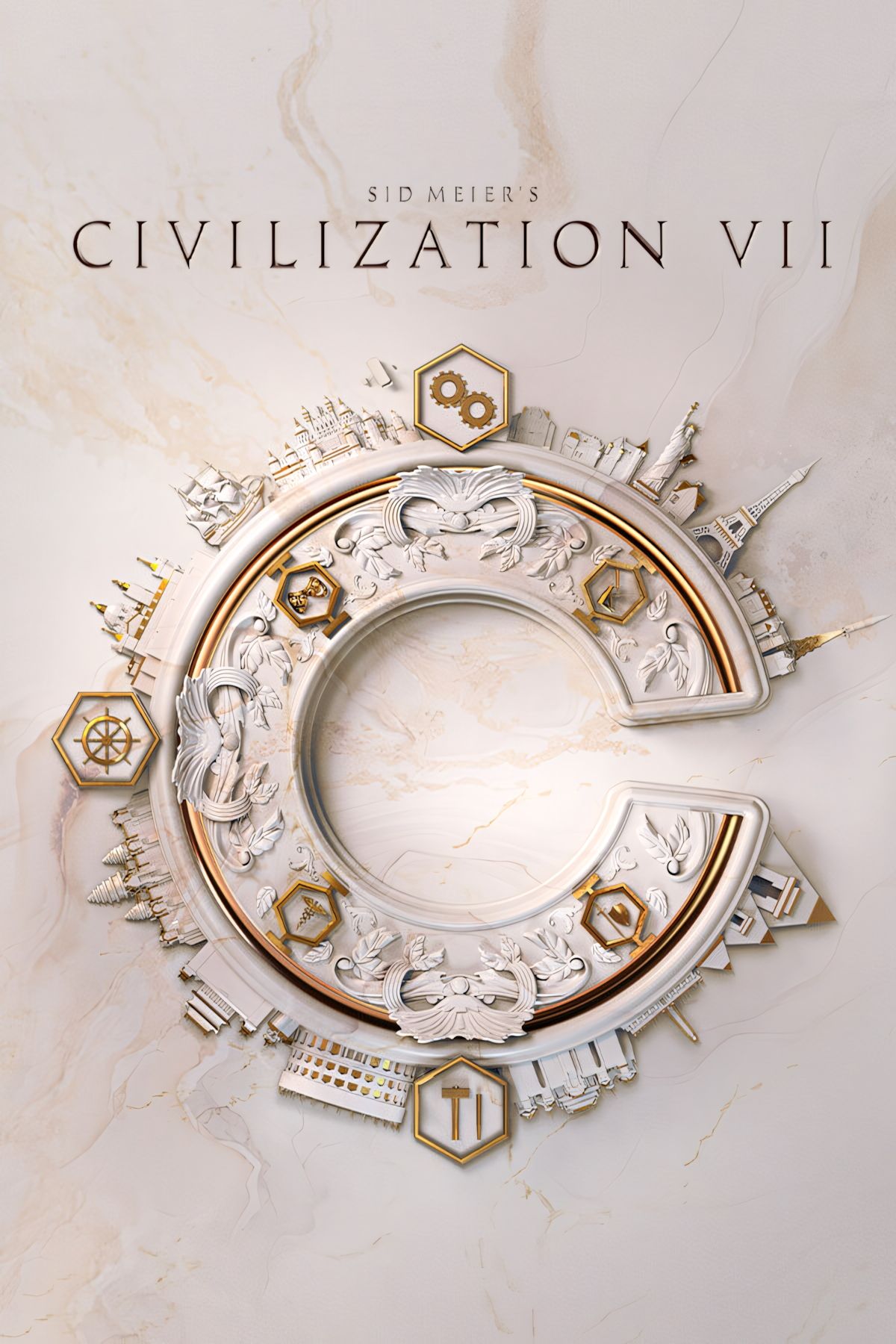
Grand Strategy
Turn-Based Strategy
4X
- Released
-
February 11, 2025
- ESRB
-
t
- Genres
-
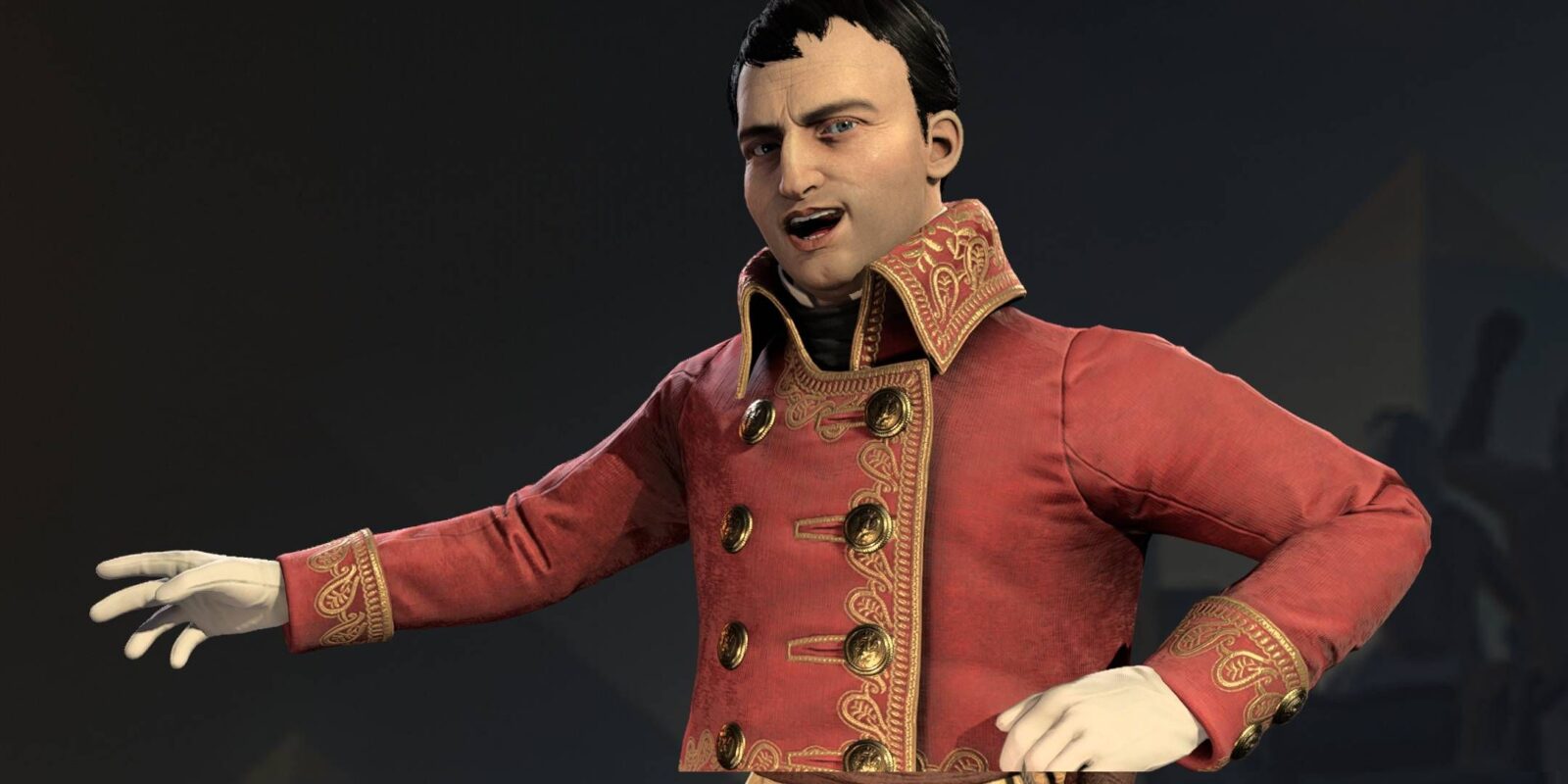

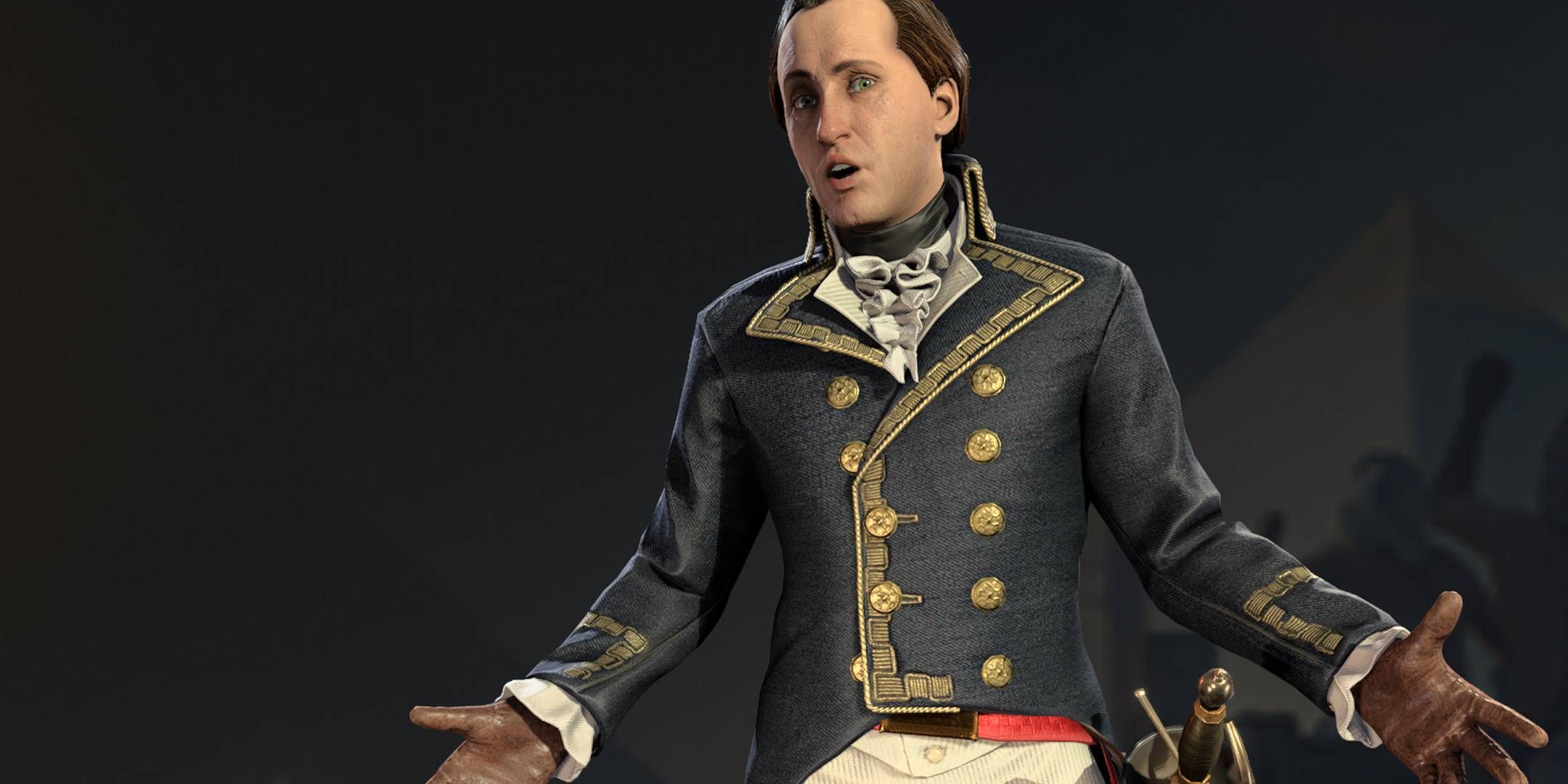
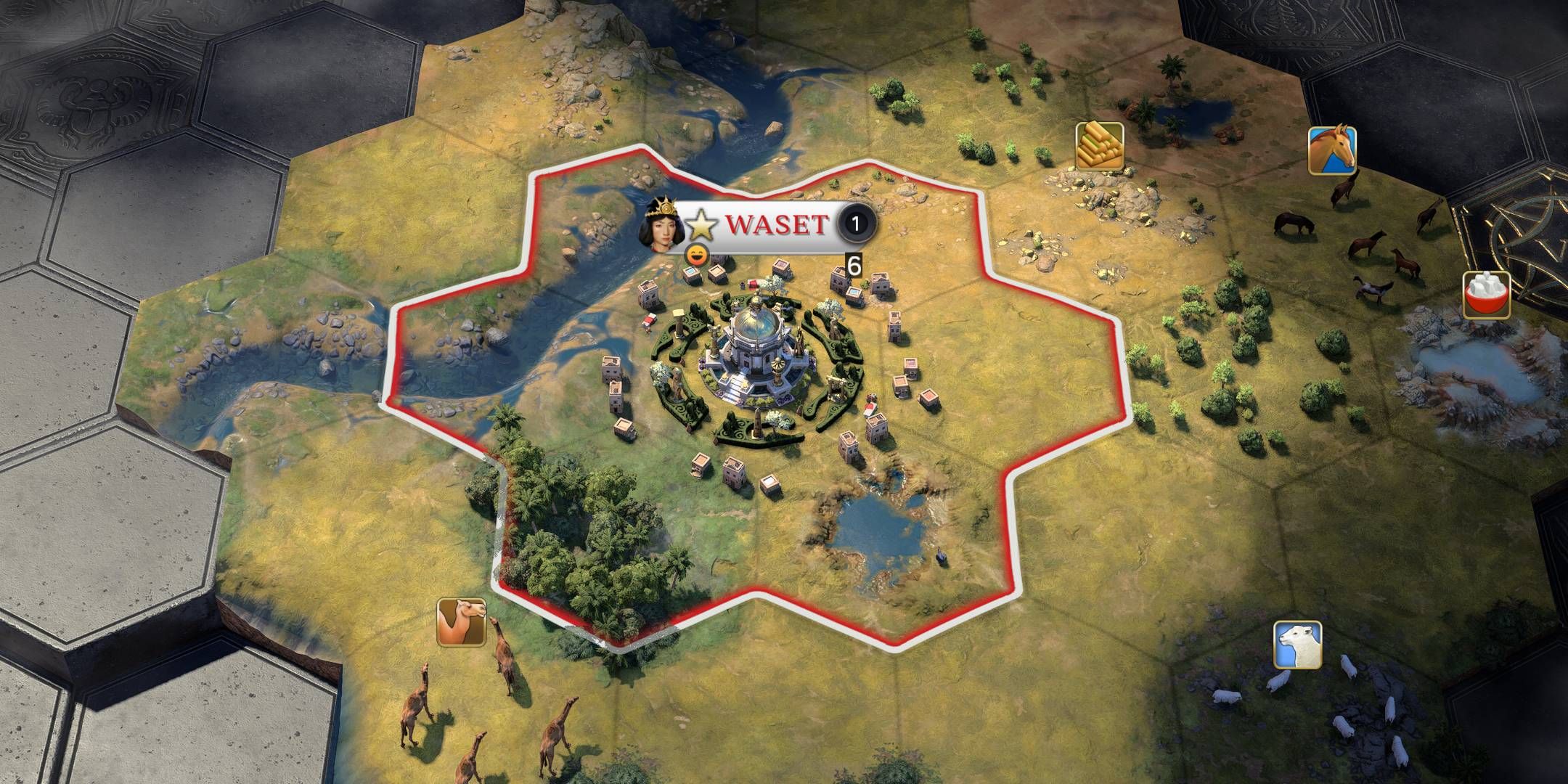
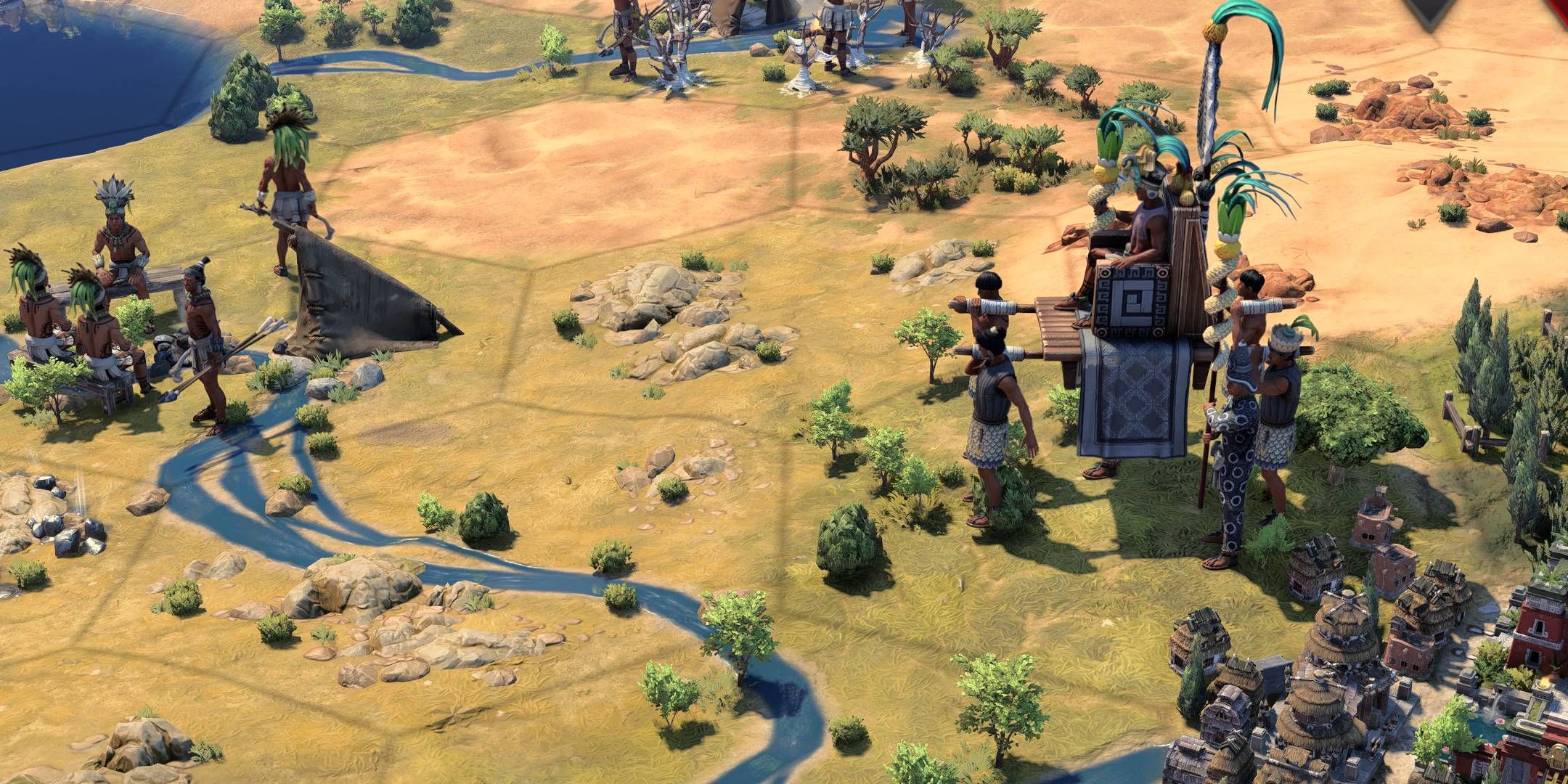
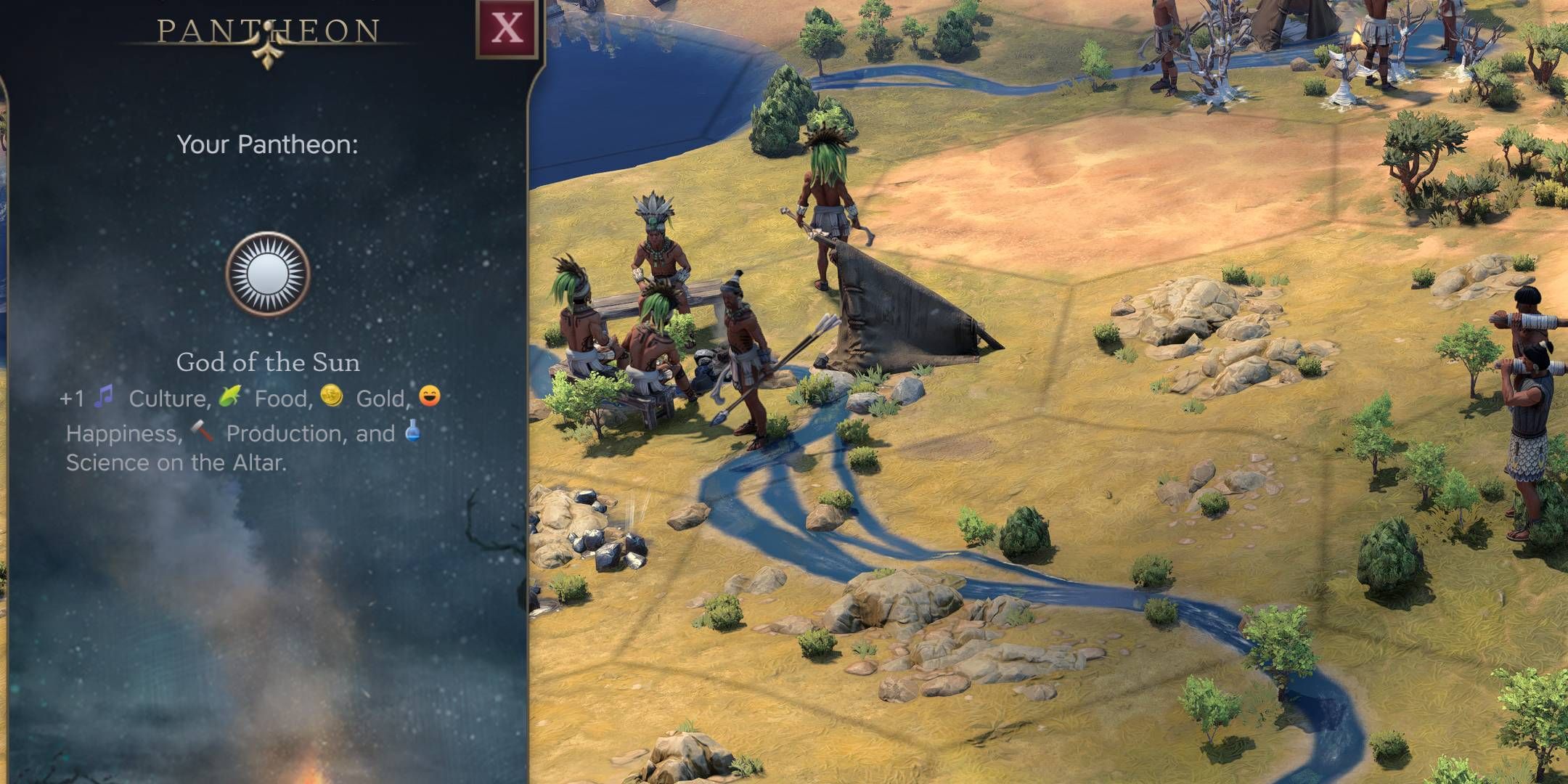
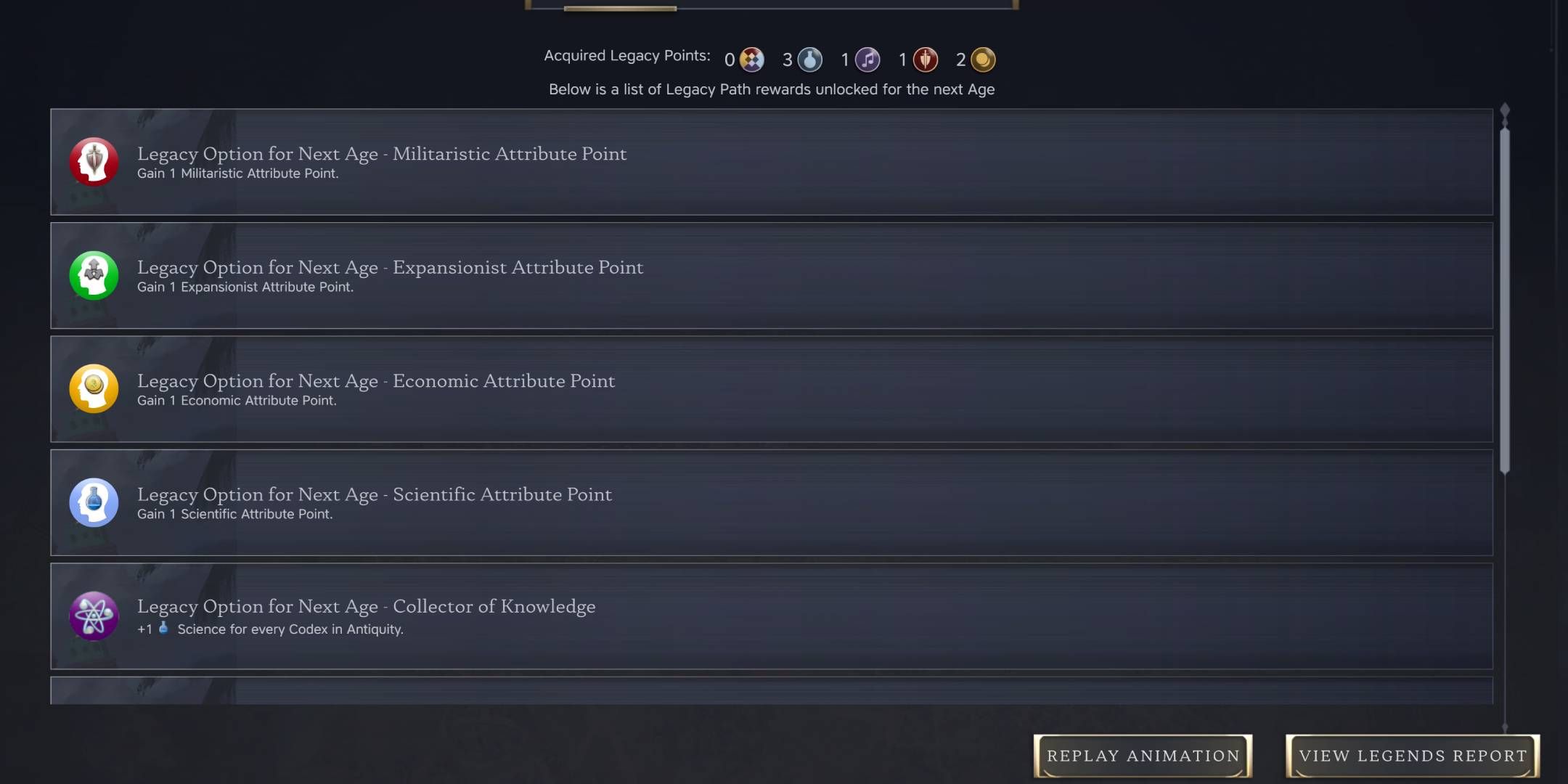
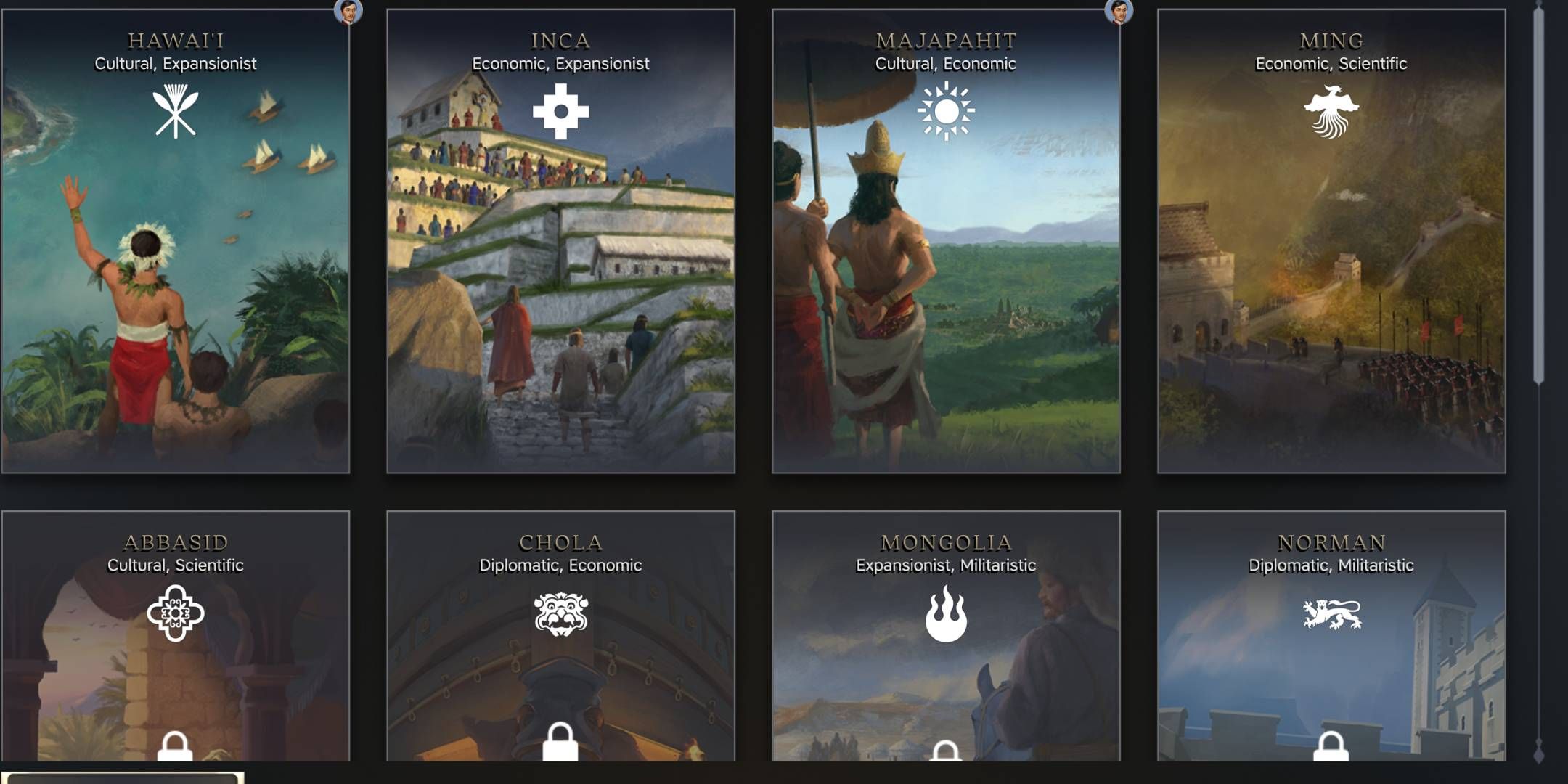
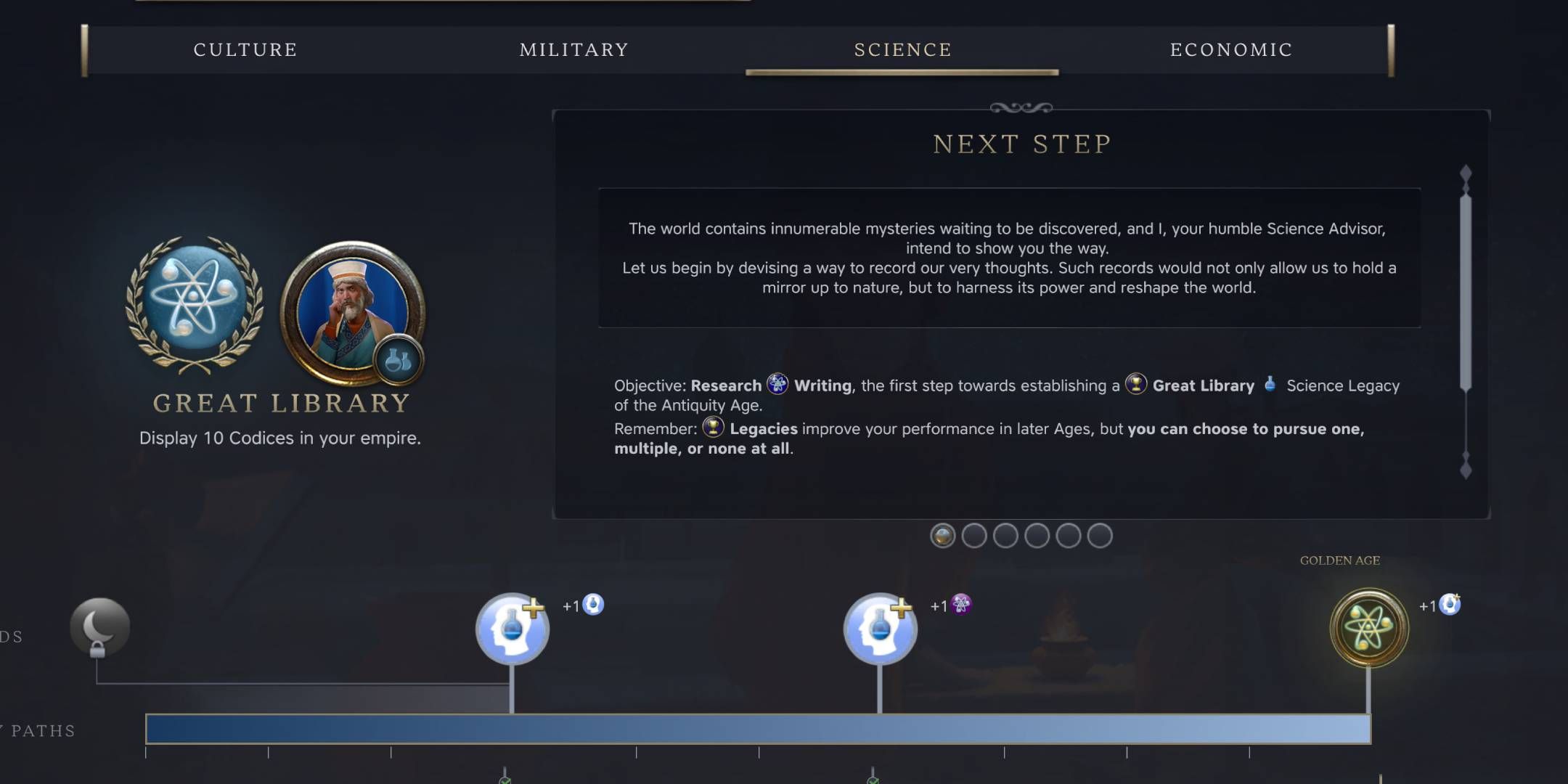









Leave a Reply